|
Graham writes … Sometimes when John and I are leading a conference, we ask people to speculate about what is the most complex object we have discovered in the Universe. After a few responses, usually related to celestial objects, we guide the delegates by suggesting that there are many of these objects in the conference venue – the human brain! The working network of the brain has around 100 billion neurons (brain cells), resulting in the order of a million billion neuronal connections. In some way that science has yet to fully understand, this leads to mind and consciousness, as the mechanisms that give rise to these attributes remain a mystery. Given that mind and consciousness are the things that make us human, and are fundamental to our daily experience of ourselves and the world around us, it is remarkable that we have yet to comprehend how this works. One of the biggest scientific mysteries resides inside our head! 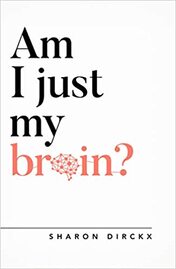 Earlier in the year I tuned in to an online meeting of Christians in Science to hear a talk called Am I just my Brain? by Dr Sharon Dirckx. As you may know by now, I am not exactly well-qualified to comprehend the subtleties of neuroscience, but I was delighted that the talk was pitched at my level, and I was also bowled over by what she had to say about our current understanding (or controversy) about ‘mind’. Dirckx (pronounced ‘Dirix’) is currently a Senior Tutor at OCCA (Oxford Centre for Christian Apologetics), after acquiring over a decade of hands-on experience in functional magnetic resonance imaging. Subsequently, I have acquired a copy of a neat little book that she has written with the same title (1). It was a good read, that I can recommend. This little book has much to say about a great many things, but I would like to say something about two topics in particular. 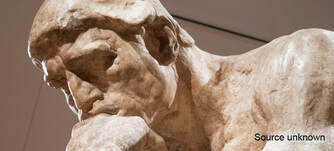 Firstly, that there is still debate about where the human mind ‘resides’. Given the importance of mind, I was really quite excited by the idea that the practitioners and philosophers are still discussing this issue. Afterall, I am effectively my mind. It is where I play out my inner life, it is where my memories reside (and effectively, my memories are what make me me) and it is where I organise and plan my life. The Oxford English Dictionary sums up ‘mind’ concisely as: The seat of awareness, thought, volition, feeling and memory. The debate about where exactly this seat resides has apparently gone on for a very long time, and still continues today. Having said this, it is fair to say that the scientific view is that the mind is the brain. All the complex facets of my inner life are just the firing of neurons, and the seat of mind is just brain chemistry. In this view, I am indeed just my brain. Another option is that the brain generates the mind. Once the brain reaches a certain level of complexity, mind emerges as something new and distinct, the word ‘distinct’ suggesting that the seat of the mind is controversially beyond the brain. In this scenario, given that mind is a product of brain, the mind ceases to exist once the brain dies. A third option offered by Dirckx is that mind is beyond the brain. Mind and brain are two distinct ‘substances’ that can interact, but they can also operate independently of each other. In this scenario, the brain can influence the mind, but the mind can also interact with the brain and the body – there is two-way traffic as, for example, when the body manifests psychosomatic illness. Clearly, this option is not recognised by the materialistic brand of science that pervades contemporary thinking on these things. Neuroscience can only recognise the first option. 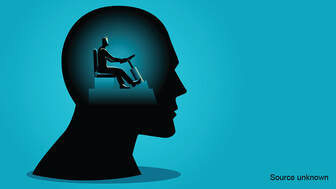 The second topic is to do with whether, as human beings, we have free will – again a bone of contention for scientists and philosophers over many years. This discussion continues in the more contemporary setting of YouTube – you will find pages of responses if you just enter ‘free will’ into the search box. Why is this particularly of interest to Christian believers? It is a fundamental facet of the Christian faith that we are free to choose. God is not in the business of interfering with our free will. We can choose to go God’s way, or our own way – in other words we can choose to follow him. As God’s creations, he could have programmed us to follow and love him, but then the notion of love is meaningless in a world full of what effectively would be a population of programmed human ‘robots’. This is made clear by Jesus when he said “So I say to you: Ask and it will be given to you; seek and you will find; knock and the door will be opened to you.” (2) It is our choice whether or not to ask, seek or knock. However, there are many so-called ‘hard determinists’, who refute our ability to make free choices, despite the common human experience that we do this all the time. Hard determinism is a viewpoint that the human brain and the decisions arising from it are wholly determined by prior causes. In other words, the human brain is likened to a mechanism that operates within the confines of fixed processes, and it is this attribute that prohibits the possibility of free will.  In her book, Dirckx dismantles the philosophy of hard determinism in a beautifully concise section of her book (3) by asking three questions – is it internally consistent?, does it have explanatory power? and can it be lived? I do not wish to repeat her arguments here but just give a summary, with an emphasis on her third question. If I lived as a cause-and-effect machine, then any personally held belief is undermined – and this includes a belief in hard determinism itself, of course! Rather my precious conviction would just be the inevitable consequence of my neurons firing. If a determinist says we don’t have free will, and requests that I evaluate the proposition, I am unable to do this freely in the absence of free will. Effectively I would have no rationality – I would not be able to choose freely between concepts. Similarly, if you can’t make a free decision then there are other important consequences. I would effectively have no creativity, as I would be unable to choose freely between creative ideas. I would have no ability to love, as I would be unable to choose freely whether to embrace someone in that way. Perhaps the most significant issue is that I would have no personal culpability. In contemporary society, we are all considered to have moral responsibility, and are therefore accountable for our actions – I have a choice whether to do right or wrong. If this is not so then hard determinism threatens to unravel the cornerstone of moral responsibility and the need for justice. In other words, if you use the consequence of determinism as a defence in a court of law, the judge would most likely tell you, in no uncertain terms, to go away and rethink. 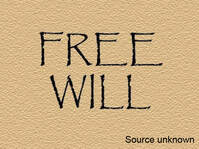 The scientific basis for saying that we do not have real freedom to make choices is the idea that the laws of physics allow us to predict the future based on knowledge of the current initial conditions. In other words, if we have knowledge of the current state of all the particles in your brain, then the laws lead us to a uniquely defined future state, therefore making freedom of choice an impossibility. However, this argument disregards the fact that physics is not yet complete. In fact, all of our laws of science – the mathematics we write down to make such predictions – are very much approximations to the reality, which is governed by the powerful agencies that enact what we call the laws of nature. For more detail, see the discussion in Chapter 2 of the book (4). Also, to make such claims when the path from fundamental physics to understanding mind and consciousness is completely uncharted, is, to me, the height of scientific hubris. Dirckx’s argument takes the discussion in the opposite direction, based upon the consequences if hard determinism reigns. Either way, the bottom line is that we live in a manner in which the decisions we make mean something and these are made by volitional people, and not by cause-and-effect machines. (1) Sharon Dirckx, Am I just my brain?, The Good Book Company, 2020 (2) The Holy Bible, Luke's Gospel, Chapter 11, verse 9 (NIV) (3) Reference (1), pp 85-88. (4) Graham Swinerd and John Bryant, From the Big Bang to Biology - where is God?, Kindle Direct Publishing, 2020, Section 2.4 Graham Swinerd Southampton August 2021
0 Comments
|
AuthorsJohn Bryant and Graham Swinerd comment on biology, physics and faith. Archives
July 2024
Categories |
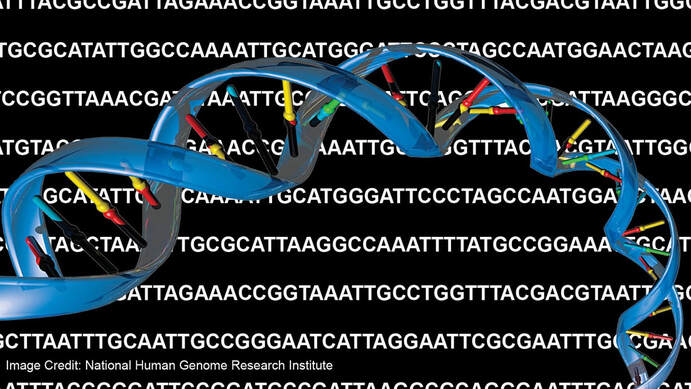
 RSS Feed
RSS Feed
